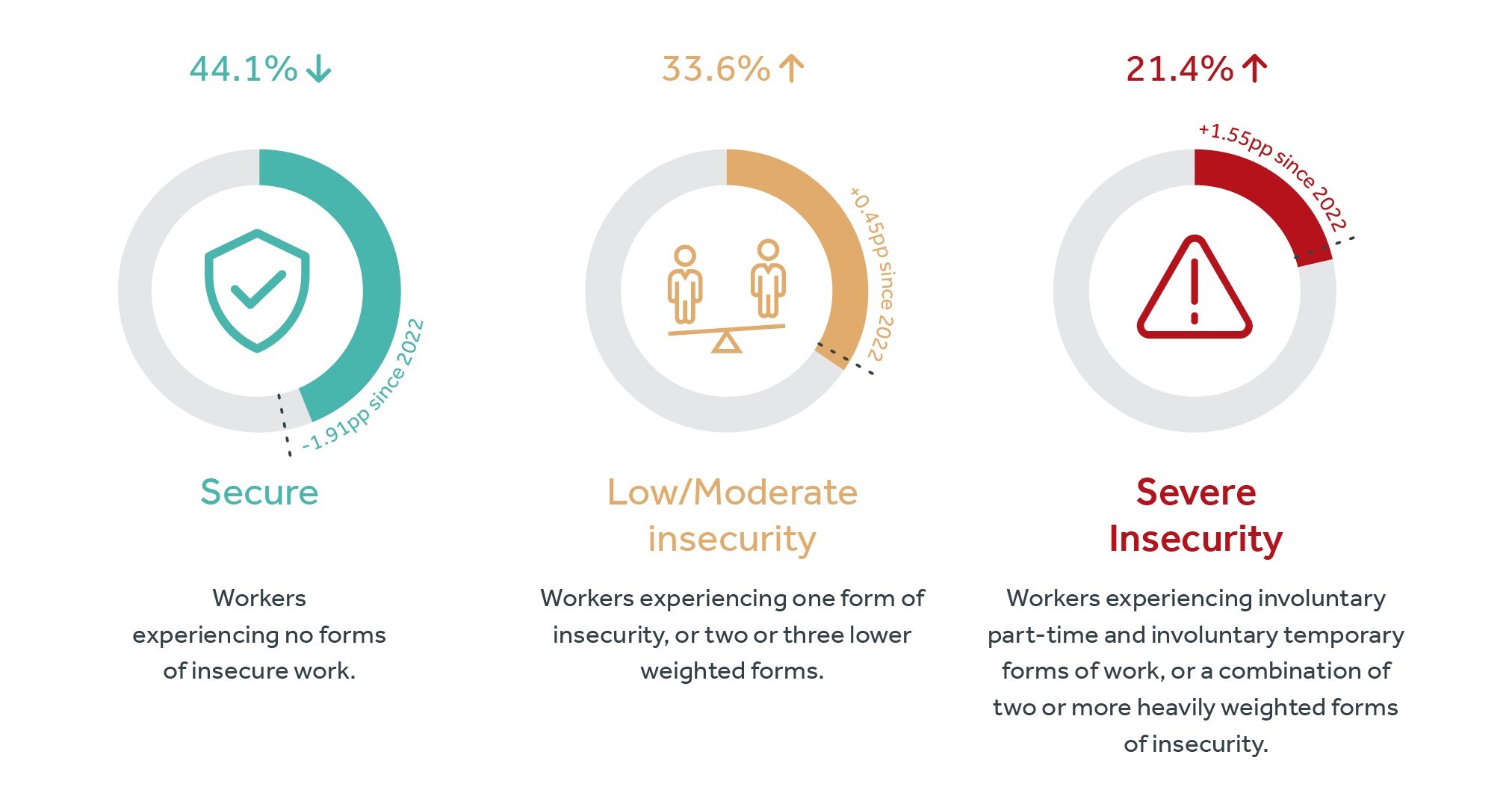The UK Insecure Work Index 2024
Posted on

New in-depth research suggests that work has become less secure in the UK in the last year as workers have faced the worst cost of living crisis for 41 years.
In 2023, an estimated 6.8 million people (21.4%) were in severely insecure work.
Since we last reported on this data in the UK Insecure Work Index 2022, this has risen by 600,000 people. The increase predominantly happened between Spring 2022 – and Spring 2023 when it rose by 500,000 people. This has created a gradual return to a pre-Covid 19 labour market, with the rates of employment and unemployment stabilising, and people moving back into insecure jobs.
Figure 1: Insecurity among the UK workforce, 2023

Key sectors and worker groups are most acutely impacted by insecure work
The growth in severely insecure work has been driven by increases in low pay, solo self-employment and zero-hour contracts. The sectors that have seen the largest increases in severely insecure work are wholesale and retail, professional & scientific, and hospitality.
The increase in the experience of severely insecure work is being felt more strongly by workers who experience other forms of labour market disadvantage.
- Three in five (60%) newly insecure workers are women, with women 2.3 times more likely than men to experience severely insecure work when accounting for other factors
- The rate of insecure work grew more strongly among Indian workers and Black African and Black Caribbean workers than White British workers and other ethnic minority groups
- Young workers (18-24) are twice as likely as older age workers (50-65) to be in severely insecure work.
- A record 1.45 million disabled workers are now in severely insecure work.
Insecure workers are poorer and more dependent on benefits
On average, individuals in severely insecure work face a financial penalty of £3,276 per year, compared to those in secure work. There are other signs that insecure workers are under huge financial pressure to make ends meet. In 2023, 55% of workers on Universal Credit were in severely insecure work.
The Back to Work agenda is likely to force jobseekers into insecure jobs
Unless substantive action is taken, the number of people in low paid and insecure work is likely to continue to rise and more workers will remain caught in the cost of living squeeze. Importantly, without tackling the causes of insecure work, any efforts to support more of those with long-term health conditions to return to work and stay in work, are unlikely to succeed.
A new approach to improve living standards and increase and sustain labour market participation is needed. The Work Foundation calls on the next Government to:
a) Bring forward a comprehensive Employment Bill that seeks to substantially reduce insecure work in the UK
b) Implement an immediate pause to any further tightening of welfare sanctions until the potential impacts of the current Back to Work intervention are evaluated and an Independent Review is undertaken which examines the role that job insecurity plays in people’s ability to enter the labour market and stay in work.
Online event Increasing secure work in the UK
Thursday 21 March 2024 | 14:00 - 15:00 | Online
Join the Work Foundation to discuss insecure work in the UK and the challenges for policy-makers as we approach the next General Election.
Related Reports
Back to report listing




